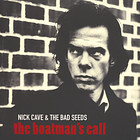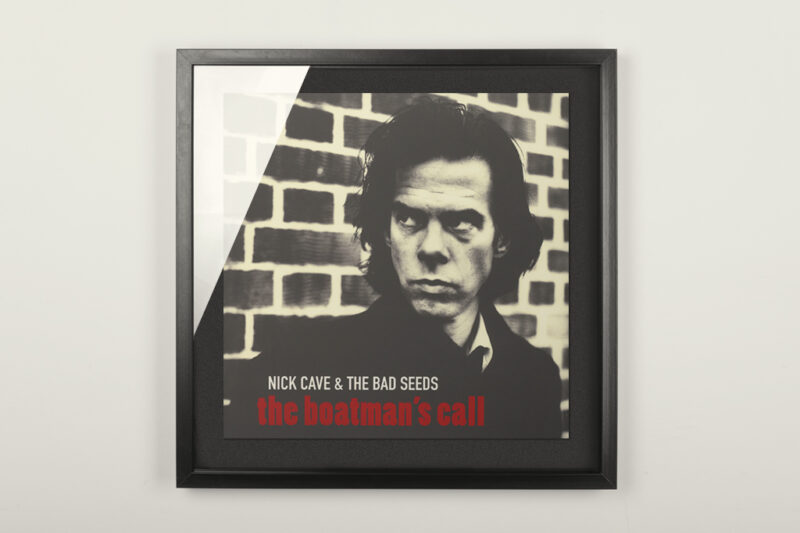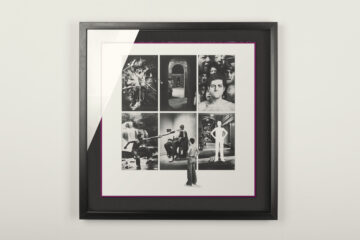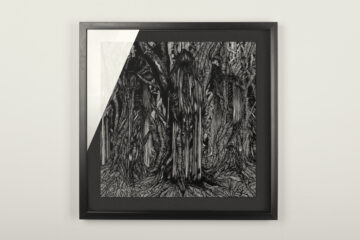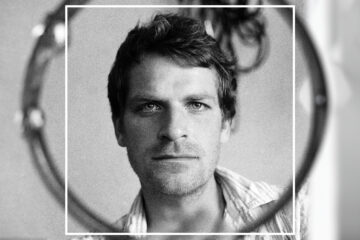Two sentences by Polly Jean Harvey created a masterpiece. At least that’s the myth about the album »The Boatman’s Call« by Nick Cave and the Bad Seeds. »I want to break up with you. It’s just over.« That’s how Nick Cave described it in his »Red Hand Files« twenty years after the breakup. In the blog, he answers questions from fans. However, he left open how much this account is a staging. What is clear, however, is that the separation from the British songwriter PJ Harvey left a painful impression on Cave in the nineties – who let that pain flow into the tenth album “The Boatman’s Call” with his band The Bad Seeds.
Not even half a year after the release of the previous album »Murder Ballads«, Cave and the Bad Seeds, which had grown to seven members, recorded their next album. The echo to the previous album did not even fade yet: With »Where the Wild Roses Grow« Cave and band had written pop history together with Kylie Minogue. Critics agreed that with this record Cave reached the peak of his self-staging as a storyteller. Literary, morbid, abysmal, that’s how almost all the music magazines of the time described this album. But Cave already made the plan not to continue in this role.
He had always wanted to make a slow and raw record, Nick Cave once told Jim Sclavunos. The Bad Seeds drummer published a series of essays on Cave and the band’s albums. In it, there is also the very honest statement of guitarist Mick Harvey about the recording of »The Boatman’s Call«: »Looking back it probably should have been a solo album. We knew that at the time.« Cave agreed.
Especially Cave’s voice and his piano playing carry the twelve songs of the album. In »Where Do We Go Now But Nowhere?« sparse drums can be heard, along with a few string melodies by Warren Ellis in the distance. Everything is produced in such a detached and unexcited way that the lyrics of the songs impose themselves on the listener. In »Black Hair« Cave sang of Harvey, obvious to everyone: »As deep as ink and black, black as the deepest sea. The smell of her black hair upon my pillow where her head and all its black hair did rest. Today she took a train to the West.« Before recording at Sarm West Studios in London, the question was whether the band could even handle this fragile approach. After all, they would have to play more accentuated. Did the Bad Seeds get it right. And disappeared in the sound almost completely behind the heartbreak of Cave.
However, Cave had already written parts of the album before the breakup with PJ Harvey. Only now Cave was no longer hiding behind fictional stories. »The Boatman’s Call« showed an artist revealing a piece of his inner self. The struggle with God and religion continues to be a motif. This time, however, it is Nick Cave who is struggling with it. Or at least he makes his audience believe it. Because, of course, »The Boatman’s Call« can also be a great game, a great staging that continues to this day. The artist Nick Cave does not have to be the human Nick Cave.
The album » cured me of Polly Harvey. It also changed the way I made music. The record was an artistic rupture in itself, to which I owe a great debt«, Cave once said. (In general, it is mainly Cave who talks and talked about the breakup. There were no statements from PJ Harvey about that.) In addition he told that the events had taken over his songwriting so that it had to become naturally such an album. Drugs, rehab, remorse, all these things played more or less obviously also a supporting role in the themes of the songwriting. However, these stories fit a little bit too well with the rest of the artist’s biography.
What followed the great soul-searching? Fear and shame. He felt kind of »embarrassed« after the release, Cave said. » I felt I had exposed too much. These hyper-personal songs suddenly seemed indulgent, self-serving amplifications of what was essentially an ordinary, commonplace ordeal.« The drama eventually disgusted him so much, he said, that he told interviewers about it. Only the press was even more at his feet after the release of »The Boatman’s Call« on March 2, 1997. After »Murder Ballads« had already collected so many positive reviews, the music press overflowed with praise for »The Boatman’s Call«. The reduced sound, the piano, the pain, the lyrics!
Today, things look different for Cave. The record was a necessary step in order to find an autobiographical way of writing. Which the Australian songwriter still cultivates on his current albums like »Skeleton Tree«. And anyway, the songs are less screams, as Cave writes in his blog, but rather spiritual liberations from the self. Whether this is so? It doesn’t make »The Boatman’s Call« any less painfully great in any case
